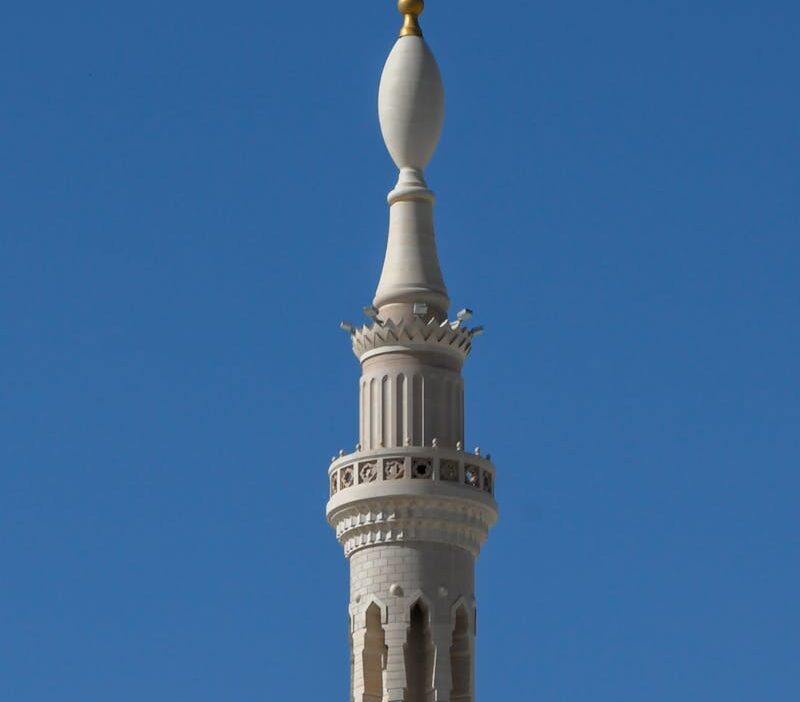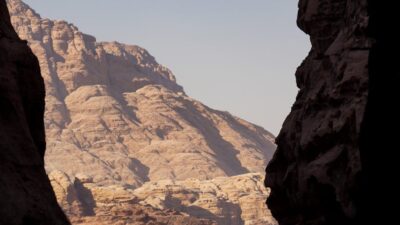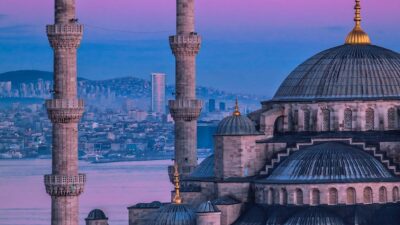Introduction
In this article we examine Abu Bakr’s migration to Medina with the blessed Prophet (salahu alaihi wa sallam). When the persecution of the people of Makkah against the Muslims grew intense, Allaah commanded them to migrate so that they could establish the religion of Allaah in a land where they could worship Him. In fact the Quraysh had agreed that the only solution was to now murder the Prophet (salalahu alaihi wa sallam). Each clan of Quraysh was to nominate a young strong man and together they would kill the Prophet (salahu alaihi wa sallam). Banū Hāshim would be unable to take revenge and be forced to accept the blood money.
Permission to migrate
Aishah (may Allah be pleased with her) said: The Prophet said to the Muslims: “In a dream I have been shown your place of migration, a land of date palm trees, between two lava fields, the two stony tracts.” So, some people migrated to Madeenah, and most of those people who had previously migrated to the land of Ethiopia, returned to Madeenah. Abu Bakr also prepared to leave for Madeenah, but the Messenger of Allaah said to him, “Wait for a while, because I hope that I will be allowed to migrate also.” Abu Bakr said, “Do you indeed expect this? May my father be sacrificed for you!” The Prophet said, “Yes.” So Abu Bakr stayed behind for the sake of the Messenger of Allaah so that he could accompany him. He fed two she-camels he owned with the leaves of the samur tree for four months. One day, while we were sitting in Abu Bakr’s house at noon, someone said to Abu Bakr, “This is the Messenger of Allaah with his head covered, coming at a time at which he never used to visit us before.” Abu Bakr said, “May my father and mother be sacrificed for him. By Allaah, he has not come at this hour except for something important.” So the Messenger of Allaah came and asked permission to enter, and he was admitted. When he entered, he said to Abu Bakr. “Tell everyone who is present with you to go away.” Abu Bakr replied, “There is no one here but your family. May my father be sacrificed for you, O Messenger of Allaah!” The Prophet said, “I have been given permission to migrate.” Abu Bakr said, “Shall I accompany you? May my father be sacrificed for you, O Messenger of Allaah!” The Messenger of Allaah said, “Yes.” Aishah stated; Before I saw Abū Bakr cry, I never thought that anyone cried out of happiness. Abu Bakr said, “O Messenger of Allaah, may my father be sacrificed for you, take one of these two she-camels of mine.” The Messenger of Allaah replied, “(I will accept it) with payment.” So we prepared the baggage quickly and put some journey food in a leather bag for them. Asma’, the daughter of Abu Bakr, cut a piece from her waist belt and tied the mouth of the leather bag with it, and for that reason she was named Dhaat-un-Nitaaqayn (i.e. the owner of two belts).
Once the Quraysh realised that the Prophet and Abū Bakr had left, they set up watchmen at every exit from Mecca, and declared a prize of 100 camels for each of them, dead or alive. They also hired footmark experts to trace their tracks.
In the cave of Thawr
Then the Messenger of Allaah and Abu Bakr reached a cave on the mountain of Thawr and stayed there for three nights. Thawr was south-west of Mecca, whereas Madina was north. This was to mislead the Meccans, as they would be searching north. ‘Abdullah bin Abi Bakr who was an intelligent and wise youth, stayed with them overnight. He would leave them before daybreak so that in the morning he would be with Quraysh, to give the impression that he had spent the night in Makkah. He would keep in mind any plot made against them, and when it became dark, he would go and inform them of it.
‘Aamir bin Fuhayrah, the freed slave of Abu Bakr, used to bring sheep of his master, Abu Bakr to them a little while after nightfall. So they always had fresh milk at night. ‘Aamir bin Fuhayrah would then take the flock away when it was still dark before daybreak. He did the same on each of those three nights. On his return from the cave, he was to remove the traces and footmarks left by Abū Bakr’s son ‘Abdullah. Abū Bakr’s daughter Asmā’ would bring them food every night.
Eventually a search party came so close to the cave that they could hear them talking. Abu Bakr said to the Prophet: “If one of them looks down at his feet, he will see us.” He said, “What do you think, O Abu Bakr, of two, the third of whom is Allaah?” (al-Bukhaari). Allah says in the Quran:
If you help him (Muhammad) not (it does not matter), for Allah did indeed help him when the disbelievers drove him out, the second of two, when they both [Muhammad and Abu Bakr] were in the cave, and he said to his companion [Abu Bakr]: “Be not sad (or afraid), surely Allah is with us.” Then Allah sent down His calmness upon him and strengthened him with forces which you saw not, and made the word of those who disbelieved the lowermost. (Quran, 9: 40).
The virtues of Abu Bakr
Interestingly, nearly all the Shī‘a tafaseer agree that the verse above refers to Abū Bakr . This Quranic verse honors Abu Bakr in five ways:
- Firstly: The Quran refers to Abu Bakr as the ثَانِيَ اثْنَيْنِ “second of the two” citing Abu Bakr as the sole partner of the Prophet in this miraculous event. This was indeed such a great honor that the Ansar forfeited their right to Caliphate and gave it instead to Abu Bakr based on this verse.
- Secondly: In this verse of the Quran, we see that Allah refers to Abu Bakr using the term “sahib” (companion) showing the closeness of the Prophet to Abu Bakr. صَاحِبِهِ In fact, the Prophet chose his closest companion to accompany him on this very dangerous journey; nobody other than Abu Bakr was given the honor of escorting the Prophet to Medinah. It could be said that Abu Bakr was the personal bodyguard of the Prophet of Islam, the one man trusted enough to handle the delicate mission of transporting Allah’s Messenger to safety and away from the clutches of the mushriks.
- Thirdly: The Prophet lovingly reassures Abu Bakr to “grieve not.” لاَ تَحْزَنْ This is the Prophet’s own personal solace and affection being given to this man, don’t worry, everything will be alright.
- Fourthly: Most importantly, the Prophet continues and tells Abu Bakr that “Allah is with us.” إِنَّ اللَّهَ مَعَنَا
- Fifthly: Allah sent his Sakinah down upon Abu Bakr. Allah sends Sakinah down upon the believers.
Summarised from Abu Bakr as-Siddeeq: His Life and Times. by Ali M. Sallabi.






has Abubakr been to Medina prior to his migration with Muhammad?